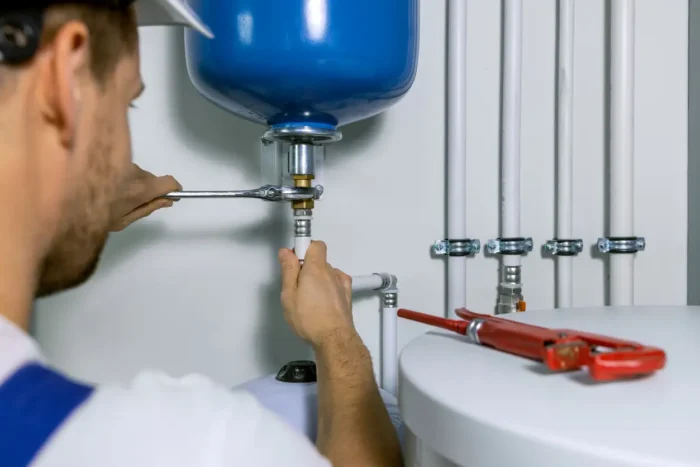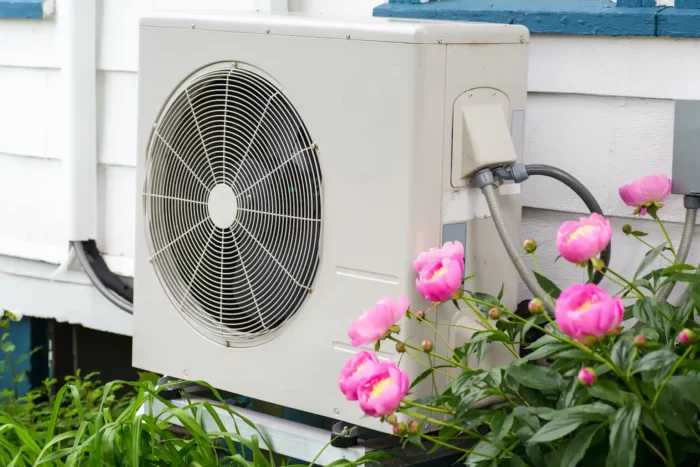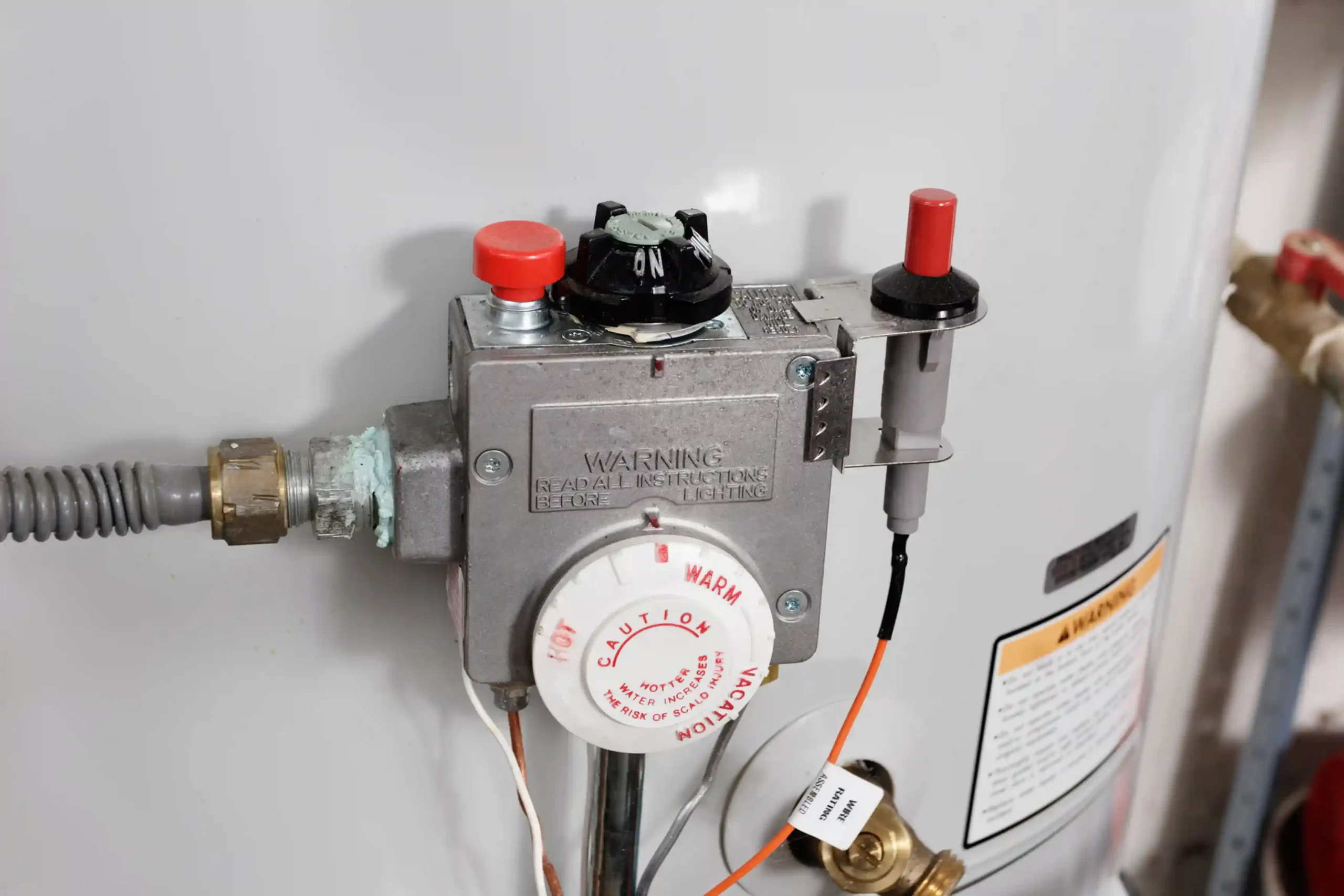Why AC compressor connected to pipe icing up is a common issue that many homeowners face, especially during heavy AC use. This problem often appears as ac unit ice on pipe or ice on air conditioner pipe inside, and it usually indicates something is wrong with the cooling process. The cause can range from poor airflow due to dirty filters, low refrigerant levels, or issues with the evaporator coil.
When these conditions exist, the temperature inside the system drops too low, causing condensation to freeze on the pipes. If not addressed promptly, this can lead to reduced cooling performance, increased energy bills, and potential damage to the AC unit. Fortunately, this is a fixable problem with timely maintenance or professional help.
Table of Contents
ToggleTypical Reasons for Ice Deposit on AC Unit Pipes
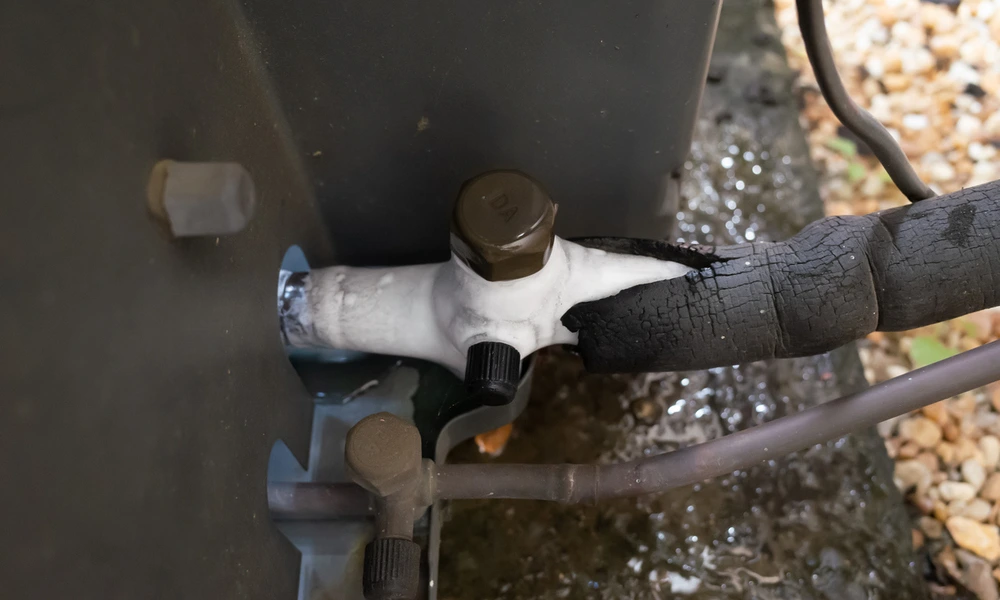
Experiencing ac pipes freezing outside or noticing an ac unit frozen pipe outside can be frustrating, especially when it affects your cooling efficiency. Here are the most common causes behind this issue:
1. Low Refrigerant Levels
When refrigerant levels drop too low, the pressure in your AC system also decreases. This causes the temperature of the coils to fall below freezing, leading to ice formation. Symptoms include reduced cooling, hissing sounds, or visible frost buildup. Over time, this can result in ac unit frozen pipe outside becoming a recurring problem.
2. Restricted Airflow
Poor airflow is one of the main reasons for ac pipes freezing outside. Blocked or dirty air filters, closed registers, or obstructed vents reduce the amount of warm air passing over the evaporator coils. This lack of airflow causes the coils to freeze and ice to develop on the pipes.
3. Thermostat Problems
Setting your thermostat too low, especially in cooler weather, can overwork the system and cause it to freeze. The AC continues to run even when it doesn’t need to, leading to frozen coils and ac unit frozen pipe outside concerns.
4. Malfunctioning Blower Fan
If the blower fan isn’t working properly, it fails to circulate air over the evaporator coil. This disrupts the cooling cycle, allowing ice to accumulate. Inconsistent airflow directly contributes to ac pipes freezing outside and can eventually shut down the entire system.
5. Dirty Evaporator Coils
Dirt and grime on the evaporator coils act as insulation, preventing proper heat absorption. When the coils can’t absorb enough heat, they get too cold and start to freeze. This buildup often leads to ac unit frozen pipe outside, especially if maintenance is neglected.
6. Outdoor Temperatures Too Low
Running your AC during cooler nights or in mild weather can also cause the system to freeze. When the temperature outside is already low, the system doesn’t need to work as hard, but if it keeps running, ac pipes freezing outside becomes more likely.
Ice’s Possible Effects on Air Conditioners
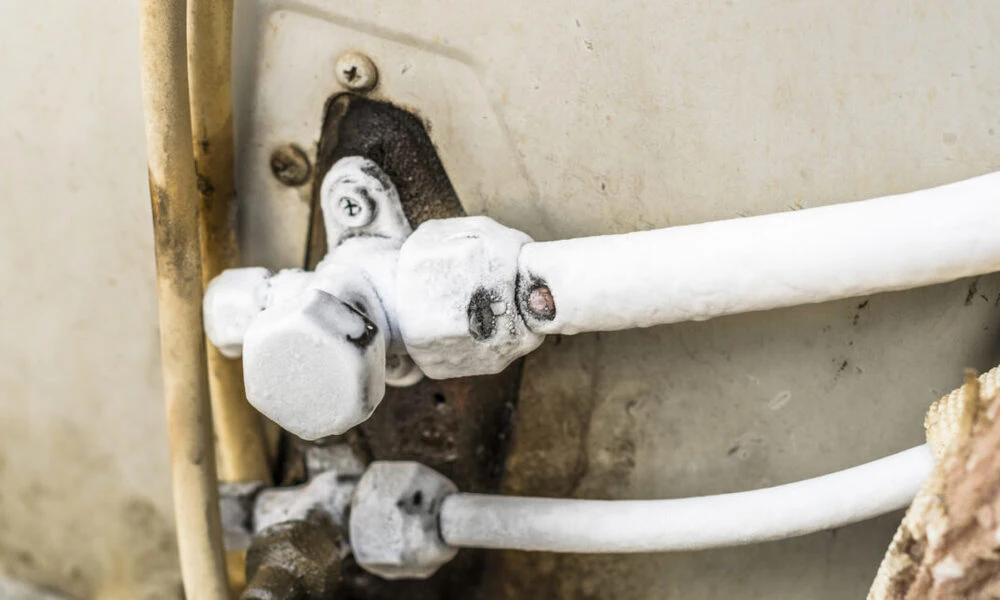
When you notice ac unit ice on pipe or ice on air conditioner pipe inside, it’s more than just a visual concern it’s a warning sign that your air conditioning system is not operating correctly. Ice buildup can have several negative effects on your AC, both in the short and long term.
1. Decreased Cooling Efficiency
One of the first effects of ac unit ice on pipe is reduced cooling performance. Ice restricts proper airflow and heat exchange, making it harder for your system to cool the air. You may notice uneven temperatures or rooms not getting as cool as they should.
2. Increased Energy Consumption
When there’s ice on air conditioner pipe inside, your system has to work harder to maintain the desired temperature. This increased strain leads to higher energy usage and a noticeable spike in your electricity bill.
3. Risk of Damaging the Compressor
Prolonged icing can cause liquid refrigerant to flood back into the compressor—something it’s not designed to handle. This can lead to severe internal damage or even complete compressor failure, which is one of the most expensive AC repairs.
4. Potential for Complete System Shutdown
If ac unit ice on pipe is ignored, the buildup can cause the system to overheat, trip breakers, or enter a safety shutdown mode. This not only affects comfort but can leave your home without cooling when you need it most.
5. Long-Term Impact on Lifespan of the AC Unit
Constant strain from ice-related issues reduces the overall efficiency and durability of your system. Over time, ice on air conditioner pipe inside can shorten the lifespan of your AC, leading to more frequent repairs or premature replacement.
You may read How To Clean Ac Filter?
If Your Air Conditioner is Already Frozen, What Should You Do?
Discovering that your air conditioner is frozen can be stressful, especially during hot weather. Fortunately, there are a few immediate steps you can take to safely address the issue before calling in a professional.
Step 1: Turn Off the AC Immediately
The first and most important step is to shut the system off completely. Continuing to run it while frozen can cause serious internal damage, especially to the compressor.
Step 2: Switch the Fan ON to Thaw Ice Faster
Turn the system’s fan setting to “ON” instead of “AUTO.” This keeps air moving across the coils, helping to speed up the thawing process without engaging the cooling function.
Step 3: Check and Replace Dirty Filters
Clogged filters can restrict airflow and are often a root cause of freezing. Pull out the filters and inspect them. If they appear dusty or blocked, replace them with clean ones right away.
Step 4: Inspect for Obvious Obstructions
Look around vents, registers, and the indoor unit for anything that might be blocking airflow. Move furniture, open closed vents, and make sure nothing is interfering with air circulation.
Step 5: Wait and Monitor
Let the ice fully melt, which may take several hours depending on the severity of the buildup. Once the system is completely thawed and dry, you can try turning it back on and monitor how it performs.
How to Keep Your AC Unit Pipes from Accumulating Ice
Preventing ice buildup on your air conditioner’s pipes is all about proper maintenance and smart usage habits. Here are some practical steps you can take to keep your system running smoothly and avoid unwanted freezing:
1. Regularly Clean or Change Air Filters
Dirty air filters are one of the most common causes of airflow restriction, which can lead to freezing. Make it a habit to check your filters every month and replace them as needed typically every 1 to 3 months, depending on usage and indoor air quality.
2. Schedule Seasonal HVAC Maintenance
Having your system inspected and serviced by a professional at least twice a year—once before summer and once before winter—can help catch potential issues early. Technicians can clean components, check refrigerant levels, and ensure everything is working as it should.
3. Keep Vents Open and Unblocked
Closed or obstructed vents disrupt airflow and can cause uneven cooling, which may lead to frozen components. Ensure that all supply and return vents are open and not blocked by furniture, curtains, or other objects.
4. Maintain Correct Refrigerant Levels
Low refrigerant can drastically affect how your system functions and often leads to freezing. If your system isn’t cooling properly or you hear hissing noises, have a technician check the refrigerant and repair any leaks.
5. Don’t Run the AC When Outdoor Temperatures Are Too Low
Using your cooling system when it’s already cool outside—especially at night—can cause temperatures inside the unit to drop too low, leading to freezing. If it’s mild outside, consider turning the system off or using a fan instead.
6. Install a Programmable Thermostat
A programmable or smart thermostat helps regulate indoor temperatures more efficiently. It prevents the system from overcooling your space, reducing the risk of ice formation by maintaining consistent, appropriate settings.
When to Require Professional Help
If ice returns shortly after thawing or you hear unusual noises from the compressor or pipes, it’s time to call in the experts. Signs of refrigerant leaks such as hissing sounds or reduced cooling performance are serious and require immediate attention. If your system still isn’t cooling properly after basic troubleshooting, or if you suspect the refrigerant needs recharging or the coils need cleaning, don’t hesitate to reach out.
For reliable service and expert care, trust Hutchinson Heating and Air to diagnose and fix the problem quickly, keeping your home comfortable year-round.
Conclusion
Ice on the pipe connected to your AC compressor is a clear warning sign that shouldn’t be ignored. Early diagnosis and regular maintenance are key to preventing costly damage and keeping your system running efficiently. Don’t wait until the problem worsens if you notice any signs of freezing or reduced cooling, act quickly. When in doubt, contact a trusted professional for help. Reach out to Hutchinson Heating and Air today to protect your comfort and avoid costly repairs!
FAQs
Can Low Refrigerant Alone Cause Icing?
Yes, low refrigerant reduces pressure in the system, causing temperatures to drop and ice to form on the coils and pipes.
Is It Safe To Run My Ac When It’s Slightly Iced?
No, running the AC while iced can cause further damage, especially to the compressor. It’s best to turn it off and allow it to thaw first.
How Long Does It Take For A Frozen Ac To Thaw?
Thawing time can vary but typically takes several hours. Running the fan without cooling can help speed up the process.
Should I Attempt To Remove The Ice Manually?
It’s not recommended to chip away the ice, as this can damage the unit. Let the ice melt naturally or consult a professional for safe handling.

